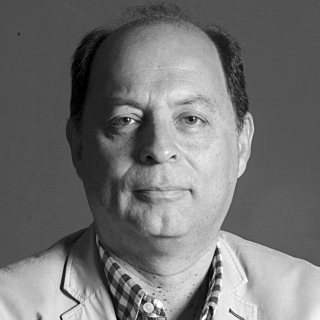
Let Us not Forget Alzheimer’s | OP-ED
60% of dementia is associated with this disease. The solution for a variant is in the hands of a Colombian scientist.
Several days ago, a video of an Argentinian soccer player became a trending topic in social media, who, after a game, surprised a journalist from a sports channel as he answered “I don’t remember” to three very obvious questions about what happened during the match. It seemed like an unkind reaction at first.
An hour later, after raising all kinds of reactions, most of them against the athlete, the reason for those answers was known. It was all part of a campaign by the Association Against Alzheimer’s (ALMA) and Racing soccer team. “Short-term memory loss is one of the first and most common symptoms of Alzheimer’s. Early detection of this disease helps with better treatments and a better quality of life," said soccer player Leonardo Sigali, the protagonist of the story.
Alzheimer’s is the most common dementia-related disease, almost 70% of the cases, according the World Health Organization. It is estimated that 35 million people suffer from it. By 2050, these numbers could affect more than 100 million people. The impact on families and the patient is horrifying.
In this moment, there are research groups around the world trying to search out the causes and possible cures. One of them is in University of Antioquia, in Medellin (Colombia). Leading the group is Dr. Francisco Lopera, a clinical neurologist, who has done research on the disease for 40 years, and is a pioneer in the world.
Lopera has done research on genetic Alzheimer, the type that a patient will inevitably develop, and which is not determined by age. The Colombian scientist claims that it corresponds to 1% of the cases, and Colombia has the first place in this disease, of which 13 mutations have been discovered. The other type of Alzheimer’s is sporadic, predominant and other factors contribute with it.
RELATED CONTENT
These days the news is that Lopera and the Neuroscience Group of Antioquia, as part of the Alzheimer’s Prevention Initiative (API Colombia), concluded the initial tests of a drug that could prevent or delay the appearance of Alzheimer’s in one of its Colombian versions, and they are hoping to get the results for the Alzheimer’s Association International Conference to take place in San Diego (California) on July 31.
This process started in 2013 with almost 300 healthy volunteers from families with genetic Alzheimer´s originating 300 years back. The research has been supported by organizations such as Genentech lab, the National Institutes of Health and the Banner Alzheimer’s Institute in Arizona.
It may not be front-page news on war, COVID-19, political feuds and poverty, but ALMA foundation’s message in Argentina is a touching one, and the results obtained by Dr. Francisco Lopera are leaving a lot of hope. Let us not forget.










LEAVE A COMMENT:
Join the discussion! Leave a comment.